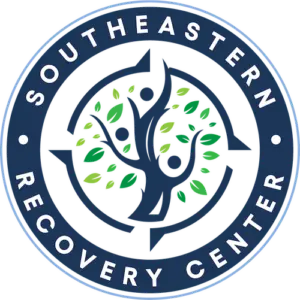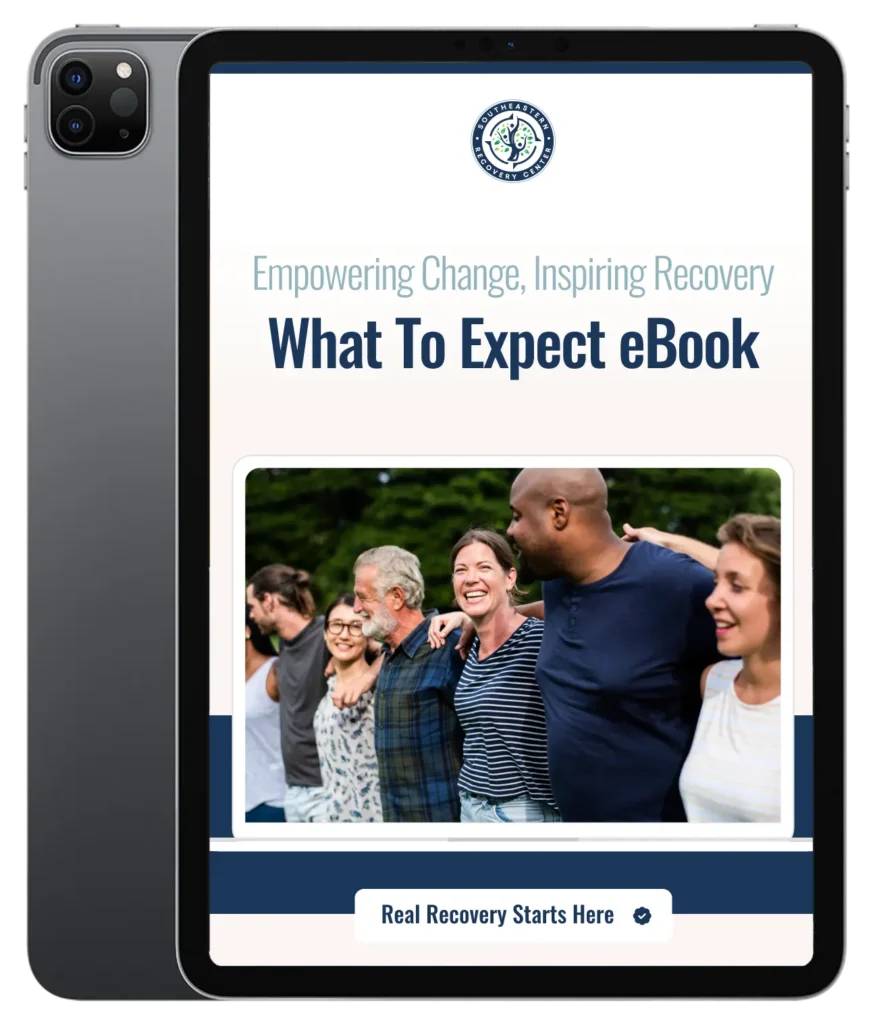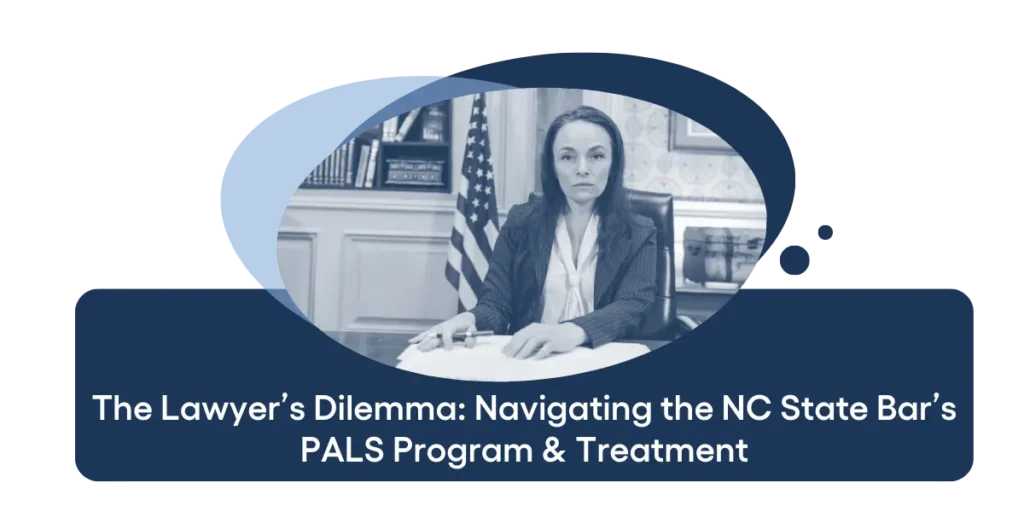Finding kratom addiction treatment near me doesn’t have to be complicated – Southeastern Recovery Center can help you with your addiction treatment.
Kratom, derived from the leaves of the Mitragyna speciosa tree, has gained popularity in recent years due to its stimulant and opioid-like effects. While some users seek kratom for its perceived benefits, it can also lead to dependence and addiction, which may require professional treatment to overcome.
If you or a loved one is struggling with kratom addiction, finding the right treatment is crucial for recovery. This guide will walk you through the steps to locate and choose the best kratom addiction treatment near you.

Steps to Find Kratom Addiction Treatment Near You
Looking for the right kratom addiction treatment can be challenging, but by taking things step by step, the process becomes much more manageable. Whether you’re searching for yourself or someone you care about, following a clear plan will help you find the best treatment options close to home.
1. Understand Your Treatment Needs
Before starting your search, it’s essential to assess the severity of the addiction and any other factors that may influence the type of treatment needed. Consider the following:
- Severity of Addiction: How long has kratom been used, and in what quantities? Is there a physical dependence, indicated by withdrawal symptoms when not using kratom?
- Co-occurring Disorders: Are there any other mental health issues, such as anxiety, depression, or trauma, that also need to be addressed?
- Support System: Is there a strong network of family or friends who can provide support during treatment?
Understanding these factors can help narrow down the type of treatment that will be most effective, whether it’s inpatient rehab, outpatient care, or another form of support.
2. Explore Treatment Options
There are several types of kratom addiction treatment available, each suited to different needs:
- Detox Programs: Detoxification is often the first step in treating kratom addiction. It involves clearing the substance from the body under medical supervision to manage withdrawal symptoms safely.
- Inpatient Rehabilitation: For severe addiction, inpatient rehab offers a structured environment with 24/7 care, therapy, and support, away from triggers and stressors.
- Outpatient Programs: If you have a supportive home environment and the addiction is less severe, outpatient care allows you to continue daily activities while receiving treatment.
- Behavioral Therapy: Therapy options such as Cognitive Behavioral Therapy (CBT) and Motivational Interviewing (MI) help address the psychological aspects of addiction.
- Support Groups and Aftercare: Ongoing support through groups like Narcotics Anonymous (NA) and aftercare programs can help maintain long-term sobriety.

3. Start Your Search for Treatment Centers
When you’re ready to start searching for “kratom addiction treatment near me,” there are several resources that can help you find the right option. One of the best places to begin is with online directories, such as those provided by the Substance Abuse and Mental Health Services Administration (SAMHSA).
These directories list treatment centers across the country and allow you to search by location to find nearby options.
A quick Google search using the phrase “kratom addiction treatment near me” can also bring up a variety of results, including local rehab centers, detox facilities, and outpatient programs. Additionally, don’t hesitate to reach out to your primary care physician or an addiction specialist, as they can offer recommendations tailored to your specific needs. Finally, your local health department may have valuable resources or be able to refer you to local addiction treatment centers, making it another great option to explore.
4. Evaluate Treatment Centers
Once you have a list of potential treatment centers, it’s important to evaluate each one to ensure it meets your needs. Consider the following criteria:
- Accreditation and Licensing: Ensure the facility is accredited by a recognized body, such as the Joint Commission, and licensed to provide addiction treatment.
- Treatment Approaches: Ask about the methods used to treat kratom addiction. Look for evidence-based practices like medication-assisted treatment (MAT) and behavioral therapies.
- Experience and Expertise: Find out how long the facility has been treating kratom addiction and whether the staff have specific experience with this substance.
- Patient Reviews and Testimonials: Look for online reviews or ask the facility for testimonials from former patients. This can provide insight into the quality of care and patient satisfaction.
- Insurance and Payment Options: Verify that the facility accepts your insurance or offers affordable payment plans. Ask about financial assistance if cost is a concern.
5. Ask the Right Questions
Before making a decision, it’s important to ask the treatment centers some key questions to ensure they can meet your needs:
What is the typical length of stay for your inpatient program?
What types of therapy are offered, and how often will I have sessions?
Do you offer detox services on-site, or will I need to go elsewhere for detox?
How do you handle relapses or setbacks during treatment?
What kind of support is available after I complete the program?
Getting clear answers to these questions can help you make an informed decision and choose the right treatment center.
6. Consider Location and Convenience
When choosing a treatment center, it’s important to think about how the location will affect your ability to attend and complete the program. If you’re considering outpatient care, it’s best to select a facility close to your home or workplace to minimize travel time and reduce the chances of missing appointments.
Accessibility is also key—consider whether the facility is reachable by public transportation or if you’ll need to arrange for other forms of transport. For inpatient treatment, the location offers more flexibility since you’ll be staying at the facility, but your preference might vary.
Some people feel more comfortable staying close to home, while others find that a change of environment helps in their recovery.
7. Verify Insurance Coverage
Insurance coverage is a crucial factor in selecting a treatment center. Here’s how to ensure your treatment is covered:
- Contact Your Insurance Provider: Call your insurance company to confirm which treatment centers are in-network and what services are covered under your plan.
- Ask About Out-of-Pocket Costs: Even with insurance, you may have out-of-pocket expenses. Ask the treatment center for an estimate of these costs based on your insurance coverage.
- Explore Financial Aid: If you’re uninsured or underinsured, inquire about financial assistance, sliding scale fees, or payment plans that can make treatment more affordable.
Most treatment facilities can help you with this process – verifying your insurance coverage for you, letting you know what is covered and what is not.
8. Visit the Treatment Center
If possible, visit the treatment centers you’re considering. A tour of the facility can give you a better sense of the environment and the level of care provided.
During your visit make sure to:
- Observe the Cleanliness and Organization: The facility should be clean, well-maintained, and organized.
- Meet the Staff: Introduce yourself to the staff and ask about their qualifications, experience, and approach to treatment.
- Ask About Daily Schedules: Get an idea of what a typical day looks like in the program, including therapy sessions, recreational activities, and free time.
- Check the Amenities: If you’re considering inpatient care, look at the living accommodations, dining facilities, and recreational areas to ensure they meet your comfort needs.

9. Make Your Decision and Begin Treatment
Once you’ve weighed your options, go ahead and choose the treatment center that feels right for you and aligns with your recovery goals. After making your choice, the next steps are crucial. Start by scheduling an admission appointment with the facility and have your medical history and any other needed information ready. Whether you’re heading into inpatient or outpatient care, take some time to prepare—arrange time off work, sort out childcare if needed, and let supportive friends or family know what’s going on. Finally, keep in mind that recovery from kratom addiction is a journey.
Stay committed, engage fully in your treatment, and take advantage of the support offered along the way.
Southeastern Recovery Center Can Help You with Kratom Addiction Treatment
Finding the right kratom addiction treatment near you is an essential step in overcoming addiction and reclaiming your life. By following this guide, you can confidently navigate the process and find a treatment center that meets your needs. Recovery is possible with the right support and commitment. If you’re ready to take that first step, Southeastern Recovery Center is here to help.
We offer comprehensive, personalized treatment plans designed to address the unique challenges of kratom addiction. Our experienced team is dedicated to supporting you every step of the way, from detox to long-term recovery. Contact Southeastern Recovery Center today to learn more about our programs and how we can help you start your journey toward a healthier, substance-free life.





